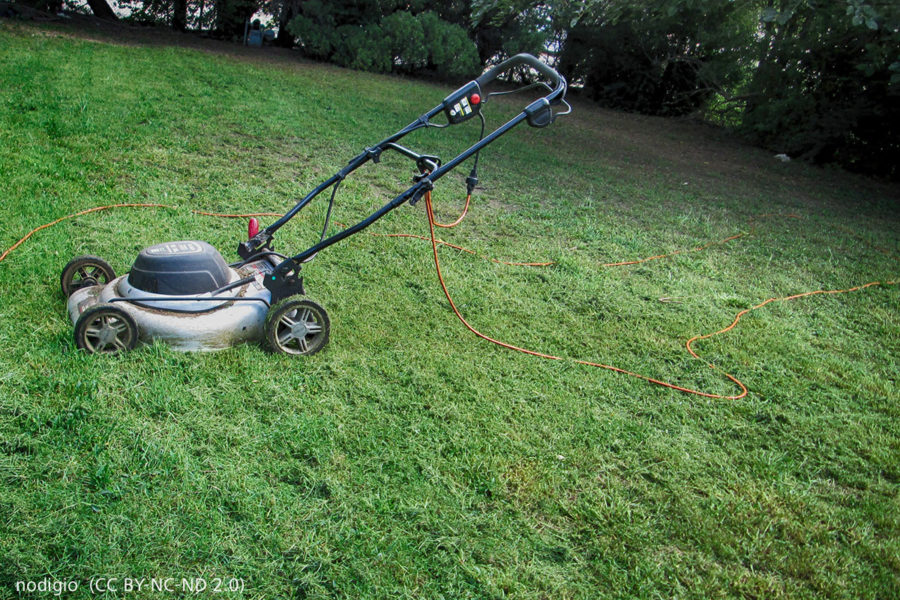28th March 2018 Vienna, Austria
Trade and comparative advantage: why Harry Kane doesn’t mow his own lawn

As a British diplomat in Austria (I am Second Secretary for Economic and EU issues), I have found one of the most surprising things about Austrian politics is how people feel about trade. Austria’s export ratio (i.e. goods exports as a ratio of GDP) is high – 52%, compared to the High Income Country average of 30%*. And most economists will tell you that any country’s economic success and wealth is dependent on international trade.
That makes sense for Austria too. With a smallish domestic market, Austrian companies like Red Bull, Voestalpine and STRABAG and numerous ‘hidden champions’ work successfully all over the world.

Yet according to the latest Eurobarometer survey, Austrians have the most negative views on free trade of any EU Member State. 37% of Austrians think ‘free trade’ in and of itself is a negative thing, compared to an EU average of 20%.
Why are people concerned? Some argue that big competitors elsewhere could push out Austrian companies and producers, whilst undermining Austria’s high standards on consumer protection. For example, how can Austrian farmers possibly compete with the huge fields of their American counterparts?
How indeed?
One answer to that question, which helps explain free trade more widely, is: the same way the gardening staff of England’s recently-named ‘Player of the Year’ and Tottenham Hotspur star Harry Kane can compete with him when it comes to cutting the grass. This is comparison is built on an example used by the economist Ian Fletcher (not a particular fan of free trade) to explain the theory of comparative advantage, as invented by the British political economist David Ricardo.
Let’s assume that Harry Kane is in good health and that he has a garden. With a little training we can assume he would be better and faster at cutting the grass than almost anyone, including his gardening staff. So surely he should mow his own lawn? Well, Ricardo’s theory of comparative advantage from 1817 tells us that although Kane may have an ‘absolute advantage’ over his gardener, he does not have a ‘comparative advantage’. Although Harry Kane might be a more efficient gardener, he is an even better footballer (as an Arsenal fan, it pains me to admit this). So it makes sense for him to specialise in improving/exporting his football skills, and to ‘import’ lawn maintenance, because that will get the most value for him.
Everyone may not have an absolute advantage, but everyone, and every country, has a comparative advantage. Whilst total specialisation in the real world for countries is never possible (countries trade in a wide range of goods and services), the two-product model helps to give some ‘shape’ to the pattern of world trade and why imports can help a country succeed as much as exports, by freeing up resources for what they are best at.
So what’s Austria’s comparative advantage? Measuring it is hard, but Austria seems to have many. Some obvious ones spring to mind, such as ski lift and cable car experts Doppelmayr, who built the ‘Emirates Air Line’ in London. But Austria has also specialised in some surprising areas: mobile phone loudspeakers (yes, the ones that annoy everyone else on the bus) are a successful export, and half of the world’s hearing implants are developed, designed and manufactured here. For Austrian farmers, we can also readily see how well they do exporting top-quality organic and sustainably produced products around the world (and the Ambassador has asked me to point out that since he was posted here in the 1980s, Austrian wine has become world-class).
So although trade theory has moved on a lot since Ricardo’s day, some of the fundamental insights from comparative advantage are still valid and relevant:
- Everyone can gain efficiency through specialisation.
- Imports aren’t bad news!
- Maybe Austria does rather brilliantly through international trade.
I hope to blog more about free trade and Austria soon, but meanwhile I would welcome your comments on my Harry Kane example.
– – –
* The United Kingdom is at 28%, the United States is at 12%, whilst Austria’s number one export destination, Germany, is close to Austria’s score with 46%: https://data.worldbank.org/indicator/%20NE.EXP.GNFS.ZS

Dear Mr. Seshadri,
I welcome and share your concern about the relatively high skepticism among Austrians regarding the benefits of free trade, although Austria has clearly benefited from international trade, as you have pointed out in your blog post.
The reason for this paradox might be in the way economists have been arguing in favour of free trade during the last decades. In my opinion, the problem resides particularly in the notion of comparative advantage. In case you are not familiar with the latest research results on this topic, I will make a brief resume here.
1. It is now generally agreed that Ricardo’s famous numerical example has been misinterpreted.
2. The original numerical example does not rely on unrealistic assumptions, as Ian Fletcher wrongly claims. See here: https://ssrn.com/abstract=3067883
3. The latest results show that Ricardo did not prove a new law or principle for specialisation, usually known as comparative advantage. He rather used the same rule for specialisation as Smith. Therefore, the widespread contraposition of Smith’s absolute advantage and Ricardo’s comparative advantage has to be dismissed. See here:
https://ssrn.com/abstract=3095473
In short, one can make a more persuasive case for free trade – and probably convince Harry Kane why he should not mow his own lawn – without any reference to comparative advantage.
In case you are interested in exchanging views about these topics, we might arrange to meet, since I am also living in Vienna.
Best regards,
Jorge Morales